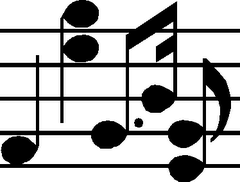Canada to Lease New Tanks for Afghanistan

A Leopard tank of the Edmonton-based Lord Strathcona's Horse,
attached to ISTAR squadron in southern Afghanistan,
returns to a Canadian Forces mountain base after
assisting a patrol on the lookout for Taliban insurgents.
-
OTTAWA — A federal cabinet committee has given the green light to the lease of 20 state-of-the-art tanks to replace aging armoured vehicles in Afghanistan.
The cabinet priorities and planning committee approved the lease of the German-built Leopard A6M tanks last week, said a Defence Department source, who asked not to be named.
The recommendation, which is unlikely to be overturned, is now on Prime Minister Stephen Harper’s desk for final approval.
The news Tuesday came as Gen. Andrew Leslie, the country’s top army officer, said he might have to consider pulling existing tanks — which don’t have air conditioning — out of service in Afghanistan this summer because of the heat.
He also told troops in Kandahar to expect a decision from the prime minister on the new tanks within a week.
The new tanks have air conditioning, as well as improved protection against road-side bombs and suicide vehicles, both of which have been packing progressively bigger punches lately.
The army has a handful of older Leopard tanks, which are currently doing duty in western Kandahar as part of NATO’s Operation Achilles.
The deal, which apparently includes access to ample spare parts, also gives Canada the option to purchase an unspecified number of additional tanks at a later date.
Reports last winter suggested that in addition to a lease, the army wanted to purchase 80 new Leopards, but the source said that number is likely to be scaled back.
Harper wouldn’t bite on questions about the future of the vehicles.
“Cabinet has been discussing the tank issue and we’ll have an announcement on that shortly,” he said in Kitchener, Ont.
Defence Minister Gordon O’Connor, in Montreal for a speech, said he wasn’t aware the issue was resolved.
A Defence Department spokesman didn’t deny that a lease arrangement has been struck.
“We are exploring a number of options to address an operational requirement,” said Lt. Adam Thomson. “However, we have nothing to announce at this moment.”
The defence source could not say how much the arrangement was worth, but brand new Leopard tanks cost roughly US $6 million each.
Currently, the army has 17 of its old 45-tonne tanks patrolling the desert and dirt roadways of rural Kandahar. The biggest drawback to the vehicles is their lack of air conditioning in a climate where daytime summer temperatures soar above 50C.
Defence Department researchers have looked at installing air conditioners in the vehicles but that would cost hundreds of thousands of dollars per vehicle.
Another idea proposes to give tank crew cooling vests — the same kind used by professional race car drivers — but they would be cumbersome when layered along with existing body armour.
Aside from the comfort factor, the lease of new tanks is seen as a more cost-effective solution, said the defence source.
Alex Morrison of the Canadian Institute of Strategic Studies said buying new equipment is better than retrofitting.
“It just makes more sense,” he said. “This is a decision that’s been in the mill for at least the last seven months.”
New Democrat defence critic Dawn Black said she’s not opposed to the lease arrangement, but only because it means tank crews won’t have to roast.
“I think it was irresponsible to deploy them, knowing they weren’t suitable for the climate,” she said.
In February, a policy think-tank produced a report that criticized Canada’s deployment of tanks to Afghanistan, saying the 1970s vintage Leopard-C2 vehicles were vulnerable to insurgent attacks.
Researcher Michael Wallace, of the Canadian Centre for Policy Alternatives, argued that new Leopard A6Ms would also be vulnerable to road-side bombs and rocket-propelled grenades. He said the introduction of tanks had the potential to spark an “arms race” with insurgents, prompting the Taliban to build bigger bombs.
Morrison dismissed the arguments, calling them ridiculous.
“What would they have us do?” he asked. “Take the tanks home and then the insurgents won’t use whatever weapon they have? What will happen in the end is the insurgents would control the whole country.”




































































